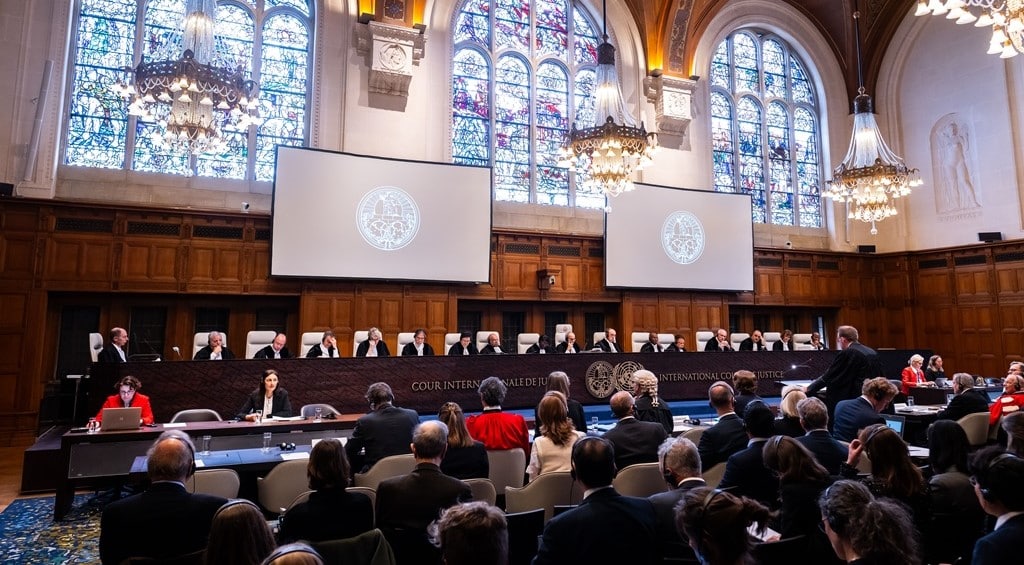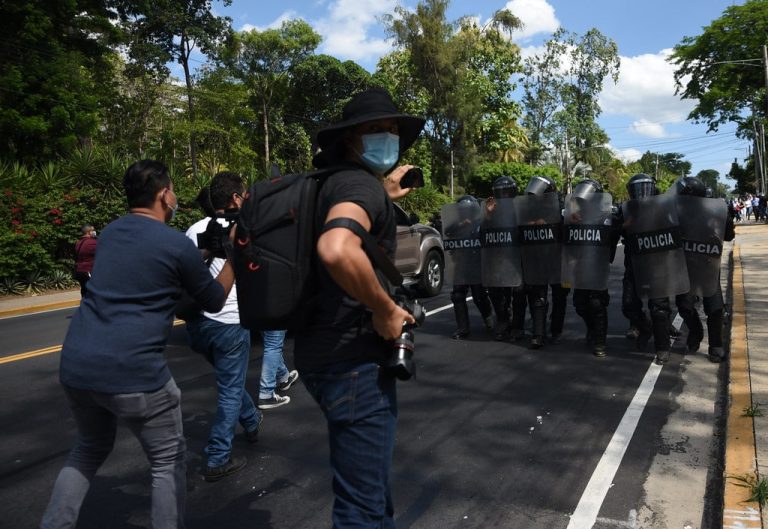27 de julio 2023

ICJ Rules Against Nicaragua's Request For Germany to Halt Arms Sales to Israel

PUBLICIDAD 1M
PUBLICIDAD 4D
PUBLICIDAD 5D
27 former Latin American presidents concerned about attacks against one of the pillars of democracy by current governments in the region

Former heads of state and government have declared there are “sufficient reasons to be alert,” given the “worsening attacks on free press and expression” in Latin America, emanating principally from government authorities. The ex-presidents were participating in the Democratic Initiative of Spain and the Americas Group (IDEA).
In a declaration signed by 27 former heads of state, they noted that in countries such as Nicaragua and Cuba there is now a total ban on free press and expression, which is considered the backbone of democracy. The situation in these countries has been denounced by organizations such as the Inter-American Press Society, Freedom House, and Reporters without Borders.
Beyond such total bans, there’ve been other equally alarming events, such as the forced closures of Pagina Siete in Bolivia and Radio Caracas in Venezuela. In the latter country, there’s also both censorship and self-censorship of posted contents: “62.9% of Venezuelans believe that these elements affect the social networks,” imposing the hegemony of the State media.
In El Salvador, “there’s a weakening of free expression, and its journalists are warning of a tendency towards information homogenization, while they must remain silent or leave the country in the face of the deterioration in Constitutional guarantees,” the ex-presidents stressed in their statement.
Meanwhile, Guatemala has imposed a system of “intimidation, silencing and restrictions on the free exercise of journalism through the murder or criminalization of journalists, as in the case of elPeriódico,” they added.
The ex-presidents flagged the current situation in Mexico and Costa Rica as equally alarming. Mexican President Andrés Manuel López Obrador has publicly accused “95% of the media of manipulating the population;” and Costa Rican President Rodrigo Chaves calls the media and journalists, “rogues”. Further, Chaves has manipulated the use of public spending for advertising by cutting off the El Nacion media company from this source of income and using his fiscal power to attack the owner of the digital media company CRHoy.com.
The group’s Declaration was rejected by Rodrigo Chaves, who also accused several former Costa Rican presidents of “spitting on the flag” and “degrading the honor of the homeland,” by putting Costa Rica in the same category as Cuba, Nicaragua and Venezuela.
“To me, it seems an enormous lack of patriotism that some former Costa Rican presidents with established reputations in the eyes of the country, should compare Costa Rica with Cuba, Nicaragua, and Venezuela in terms of freedom of the press. That’s tantamount to spitting on the flag, it’s spitting on the national symbol,” Chaves told reporters during a tour through Costa Rica’s northernmost Guanacaste Province.
“They should be ashamed of themselves: it makes me feel shame for them,” Chaves continued.
Former Costa Rican Presidents Oscar Arias (1984-1990 and 2006 – 2010); Rafael Angel Calderon (1990-1994); Miguel Angel Rodriguez (1998-2002); Luis Guillermo Solis (2014-2018); and Jose Maria Figueres (1994-1998) all signed the Declaration of the Democratic Initiative, along with 22 other former Heads of State and the Group’s Secretary General, Asdrubal Aguiar.
The document also expresses concern for the “aggressive, disparaging and stigmatizing language of journalists and social media in the digital networks of the Colombian government.” Due to all these situations, they warned: We’re approaching a turning point in Latin American free expression, especially in the internet,” as has been reported by the Inter-American Commission for Human Rights’ Special Rapporteur on Press Freedom.
In the face of this hostile panorama, the former leaders urged these governments to guarantee the free diffusion not only “of information that is favorable,” but also “those articles that are disagreeable to the State or to any sector of the population.” They recalled that pluralism “implies tolerance and a spirit of openness, without which a democratic society can’t exist.”
This article was originally published in Spanish in Confidencial and translated by Havana Times.
PUBLICIDAD 3M
Confidencial es un diario digital nicaragüense, de formato multimedia, fundado por Carlos F. Chamorro en junio de 1996. Inició como un semanario impreso y hoy es un medio de referencia regional con información, análisis, entrevistas, perfiles, reportajes e investigaciones sobre Nicaragua, informando desde el exilio por la persecución política de la dictadura de Daniel Ortega y Rosario Murillo.
PUBLICIDAD 3D